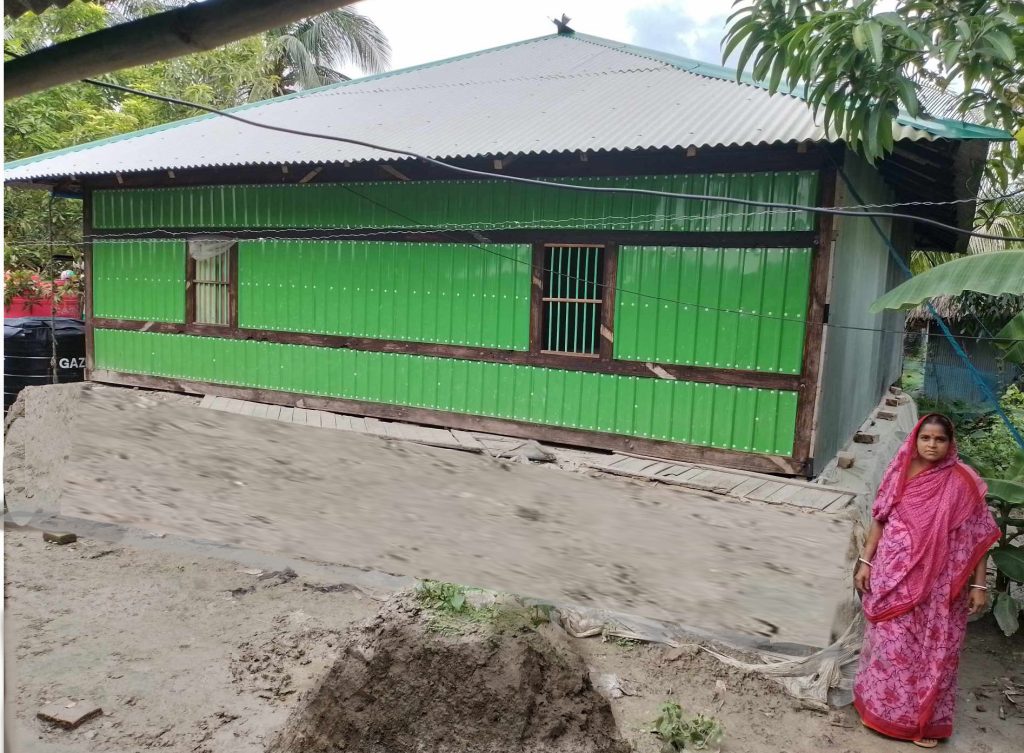Activities
Climate Change Resilience and Food Security (CCRFS)
Climate Change Resilience and Food Security (CCRFS) project started since 1st July 2021 through the support of Caritas Luxembourg & CAFOD-UK. The project has been implementing in Banishanta and Laudove Unions of Dacope Upazila under Khulna District & Chila and Sundarban Unions of Mongla Upazila under Bagerhat District with duration of five (5) years for the period from FY21 to FY26. The goal of the project is “marginalized, climate vulnerable people, particularly women, in south west of Bangladesh are living in prosperous, resilient and inclusive societies”. The target beneficiaries of the project are; poor vulnerable and climate people suffering from food insecurity. Additionally the project will address the communities for their livelihoods development, empowerment and climate resilience for about 100,000 people in the working area. The total programs focused to be implemented through ecovillage and permaculture design as well. Presently, the project has 48 women self-help groups (SHGs) in 24 villages with 1200 direct members, 24 ecovillages, retrofitted (climate adapted) houses, 4 women development networks (CBOs), 2 of them are old and 2 newly formed. In the meantime, the project successfully completed its 2 years period having close collaboration with local government, Upazila Officials, Govt. sectors, NGOs, faith leaders, teachers, related partners and stakeholders and reported the impacts which are really very positive and noteworthy. BASD continued communication and reporting to the generous donors time to time.

The main objectives of the project are to:
- Enhance women’s empowerment for more resilient communities
- Ensure food security of the targeted beneficiaries
- Work for improving Climate Change Resilient Communities/HHs
- Undertake more sustained income generation and livelihood option to enhance safe food security of the beneficiaries.
- Introduce the best practices of the project that replicated proactively among the partners of donor agencies and the project stakeholders at their respective levels
- Work for capacity building of the SHGs and Networks through forming, strengthening, and empowering towards sustainability.
